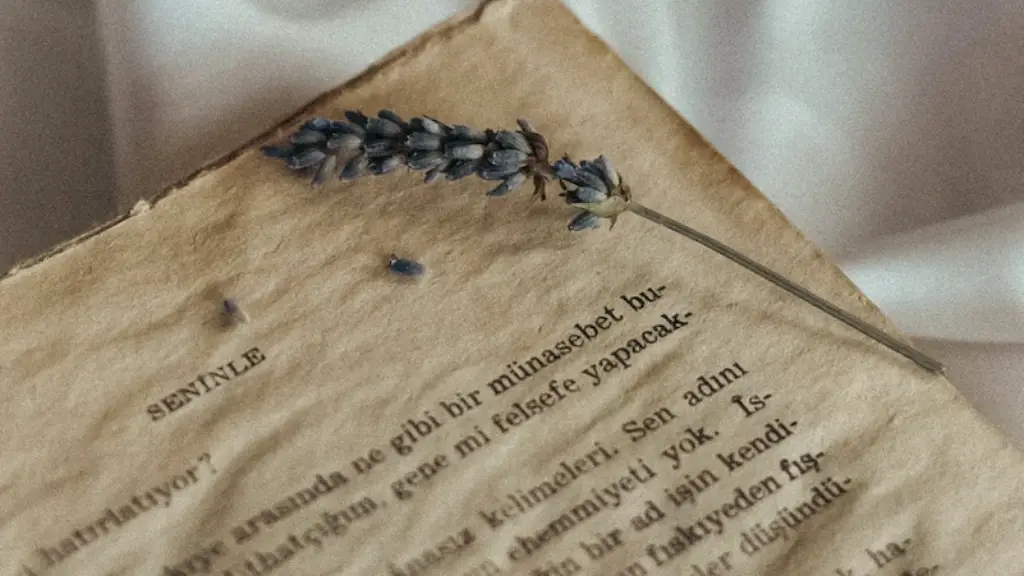An Overview Of Query Letter Writing for Poetry
Writing a query letter for poetry does not have to be a daunting task. It can actually be a rewarding and exciting experience. In this article, we will discuss the basics of writing a query letter for poetry and provide tips on how to make it successful.
The main purpose of a query letter is to introduce yourself and your work to potential publishers. It is important to make sure that your query letter is well-written, relevant and informative. A query letter should contain information about the poem, a brief biography, and a few other important details.
The First Step – Research
Before you start writing your query letter, it is important to research potential publishers. You can do this by looking online and reading reviews, following industry blogs and forums, and contacting previous authors. This will give you an idea of the type of poetry they accept and what their editorial standards are. Once you have identified the publishers you would like to target, you can then create a list of these and begin writing your query letter.
Making a Good Impression
When writing your query letter, it is important to make sure that you create a good impression. The first few lines of your letter should introduce yourself and your work in an engaging and professional manner. Be sure to include key details about yourself and your poem, such as the title and a description. You should also include a short bio and any awards or accomplishments that may be relevant.
Addressing the Right Person
Another important step in writing a query letter is to make sure that you are addressing the right person at the publisher. Researching potential publishers and finding the right point of contact is critical in making sure that your query letter is seen by the right people. You should also make sure that your letter is sent in the proper format, such as an email or letter as requested by the publisher.
Writing the Perfect Pitch
When writing a query letter, it is important to make sure that you are creating an effective and compelling pitch. The pitch should include a few sentences that explain the idea behind your poem, why it is unique and how it is different from similar poems. In addition, the pitch should include details about the poem such as its overall message and the structure of the poem. This information should be concise and to the point, so as to not overwhelm the reader.
Polishing the Query Letter
Once you have written the perfect query letter, it is important to make sure that it is free of any errors or typos. You should also use active voice instead of the passive voice, as it is more engaging and energetic. Lastly, it is important to proofread the letter multiple times to make sure that it is perfect.
Knowing When to Send the Query Letter
Once you have finished writing and polishing your query letter, it is important to make sure that you are sending it at the right time. Generally, it is best to send your query letter at least one month in advance, so that the publishers have time to review your work. If you are sending your query letter by email, make sure that you also include a follow up email if the publisher does not respond right away.
Importance of Being Patient
Once you have sent your query letter, it is important to be patient and allow the publisher time to review your work. It is also important to remember that the publishing process can take time and not to become discouraged if your query is not accepted right away.
Adopting a Professional Tone
When writing a query letter, it is important to make sure that you are using a professional and respectful tone. You should use emotion in the letter, but refrain from using any language that may be overly emotional or offensive. Additionally, make sure that you are addressing the publisher in an appropriate manner and be sure to thank them for their time.
Creating a Good Portfolio
Having a good portfolio of poetry is an important step in submitting a successful query letter. You should make sure that your portfolio contains only your best and most recent work. Additionally, you should make sure that the portfolio is professionally formatted and easy to read.
Minimum Poetry Criteria
In most cases, publishers have minimum criteria for the poetry that they accept. This means that you should make sure that your poem meets the criteria of the publisher before submitting a query letter. If the poem does not meet the standards, it is best to revise and refine it before submitting.
Including Previous Publications
If you have been previously published, you should include this information in your query letter. This will show the publisher that your work has been deemed successful by other publications and that you are an experienced writer. Make sure that you list all of your previous publications in a neat and meticulous manner.
Asking a Mentor For Help
If you are still worried about writing a successful query letter for poetry, you should consider asking a mentor or friend for help. Having a second pair of eyes on your work can be immensely helpful in creating a successful query letter.
Conclusion
Writing a query letter for poetry does not have to be a daunting task. By following the steps outlined in this article, you will be able to write a successful and effective query letter. You should always remember to research potential publishers, make a good impression, address the right person, create an engaging pitch, polish the query letter and be patient with the response. Additionally, you should make sure that you create a good portfolio and adhere to the minimum criteria set by the publisher. Asking a mentor for help is also a great way to ensure a successful query letter. By keeping all of these tips in mind, you can be sure to create a successful query letter that will get you the publication you desire.



